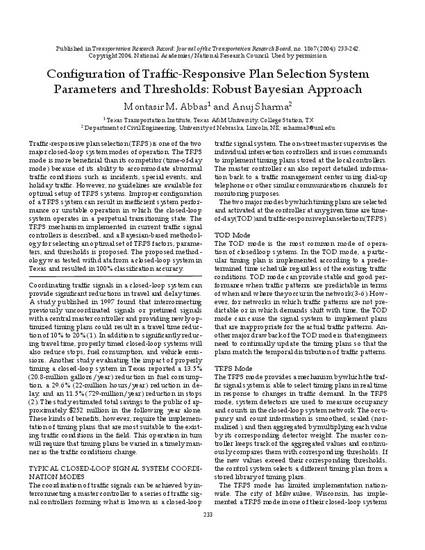
Transportation Research Record: Journal of the Transportation Research Board, no. 1867 (2004): 233-242.
Traffic-responsive plan selection (TRPS) is one of the two major closed-loop system modes of operation. The TRPS mode is more beneficial than its competitor (time-of-day mode) because of its ability to accommodate abnormal traffic conditions such as incidents, special events, and holiday traffic. However, no guidelines are available for optimal setup of TRPS systems. Improper configuration of a TRPS system can result in inefficient system performance or unstable operation in which the closed-loop system operates in a perpetual transitioning state. The TRPS mechanism implemented in current traffic signal controllers is described, and a Bayesian-based methodology for selecting an optimal set of TRPS factors, parameters, and thresholds is proposed. The proposed methodology was tested with data from a closed-loop system in Texas and resulted in 100% classification accuracy.
Available at: http://works.bepress.com/anuj_sharma1/4/

Copyright 2004, National Academies/National Research Council. Used by permission.